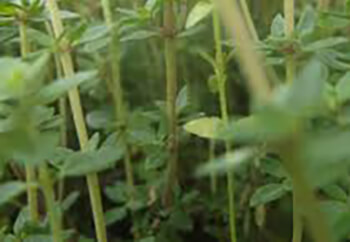Start Clean, Stay Clean with Weed Control
Sep 23, 2019

Weed control is an important issue for all phases of production agriculture, and the “Start Clean, Stay Clean” approach is one piece of the puzzle to yield success.
No doubt you’ve heard the saying “start clean” when referring to pre-plant herbicides. However, a post-harvest weed control program can be just as important because it can help your fields “stay clean.” Many of the weed issues we experience before springtime burndown actually start in the fall — an early, easier time to control them.
An application of glyphosate, gramoxone, or 2,4-D, along with Interlock and a good surfactant like Preference, can take care of weeds that appear in the fall. Keep in mind that these type of products kill only what is “green and growing.” If you are looking for a long-term solution, products like Valor have fall burndown labeling and can offer pre-emerge and longer control.
In either case, timing is critical. Make sure you have adequate soil moisture. Avoid spraying really early. Allow the dew to burn off and the leaves to dry.
If possible, these applications should be made before a killing frost. An added bonus to a fall burndown is elimination of over-wintering havens for insects.
For more information about fall burndown and weed control, contact your local Co-op agronomist.
No doubt you’ve heard the saying “start clean” when referring to pre-plant herbicides. However, a post-harvest weed control program can be just as important because it can help your fields “stay clean.” Many of the weed issues we experience before springtime burndown actually start in the fall — an early, easier time to control them.
An application of glyphosate, gramoxone, or 2,4-D, along with Interlock and a good surfactant like Preference, can take care of weeds that appear in the fall. Keep in mind that these type of products kill only what is “green and growing.” If you are looking for a long-term solution, products like Valor have fall burndown labeling and can offer pre-emerge and longer control.
In either case, timing is critical. Make sure you have adequate soil moisture. Avoid spraying really early. Allow the dew to burn off and the leaves to dry.
If possible, these applications should be made before a killing frost. An added bonus to a fall burndown is elimination of over-wintering havens for insects.
For more information about fall burndown and weed control, contact your local Co-op agronomist.